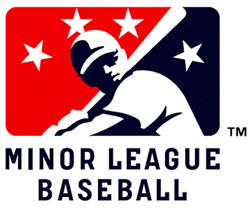 A lawsuit filed in federal court seeks to overturn the Minor League Baseball contract system, with former players arguing low pay, mandatory overtime and lack of collective bargaining rights violates state and federal wage laws.
A lawsuit filed in federal court seeks to overturn the Minor League Baseball contract system, with former players arguing low pay, mandatory overtime and lack of collective bargaining rights violates state and federal wage laws.
The lawsuit was filed in federal California Northern District Court by players Aaron Senne (a former Miami Marlins farmhand), Michael Liberto (former Kansas City Royals farmhand) and Oliver Odle (former San Francisco Giants farmhand), naming Major League Baseball, the Office of the Commissioner, Commissioner Bud Selig and the three former teams. (Though the lawsuit concerns MiLB contract for players, Minor League Baseball is not a party to the lawsuit.)
The lawsuit argues that the while some players may receive large bonuses, most receive an average of $2,500 and are paid $7,500 or less for a season of work. Those low wages, combined with a lack of freedom to move between teams or even retire, violate state and federal wage laws, according to the lawsuit prepared by attorney Daniel L. Warshaw of the California-based Pearson, Simon & Warshaw law firm. The lawsuit seeks to create a class action of current and former Minor League Baseball players.
The basic thrust of the lawsuit: that Minor League Baseball players are underpaid and exploited because MiLB players are not unionized (only MLB players are unionized), leading players to work mandatory overtime and receive less than minimum wage:
Since minor leaguers do not belong to a union, nothing has prevented the defendants from artificially and illegally depressing minor league wages. Indeed, MLB’s exemption from antitrust laws has only made it easier. Given that MLB carefully controls the entryway into the highest levels of baseball, and given the young minor leaguer’s strong desire to enter the industry, MLB and the defendants have exploited minor leaguers by paying salaries below minimum wage, by not paying overtime wages, and by often paying no wages at all.
The lawsuit takes aim at the Uniform Player Contract, which sets forth the relationship between team and player on the developmental level. It binds the player to the team for seven years:
The UPC grants the MLB team the exclusive rights to the minor leaguer for seven championship seasons (about seven years.) During that time period, the MLB team may assign minor leaguer’s rights to any other team, and the MLB team may terminate the agreement at any time for almost any reason.
But the minor leaguer cannot leave voluntarily to play for another baseball team — even outside of MLB, and even outside the United States. A player doing so ‘shall be subject to the discipline of the Commissioner.’ Retirement from baseball during the seven-year term even requires the Commissioner’s approval. Thus, minor leaguers possess very little (and one-sided) contractual mobility.
It also prevents players from playing elsewhere in the offseason, even though players are paid only during the season:
The UPC required by MLB, and enforced by Mr. Selig, states that salaries are only to be paid during the championship season, which, for most players, lasts about five months out of the year. Due to funneling that occurs at each level, significantly more minor leaguers perform at the lower levels of the minor leagues than at the upper two levels of the minor leagues (Class-AA and Class-AAA), so plaintiffs believe that most minor leaguers earn less than $7,500 per calendar year. Some earn $3,000 or less.
Despite only being compensated during the championship season, MLB’s UPC ‘obligates Player to perform professional services on a calendar year basis, regardless of the fact that salary payments are to be made only during the actual championship playing season.’ Consistent with that obligation, the UPC states that ‘Player therefore understands and agrees that Player’s duties and obligations under this Minor League Uniform Player Contract continue in full force throughout the calendar year.
There are multiple steps before this lawsuit could make an impact: a judge must first certify this as a class action.
(H/T: Courthouse News.)
—-
Share your news with the baseball community. Send it to us at editors@augustpublications.com.
Are you a subscriber to the weekly Ballpark Digest newsletter? You can sign up for a free subscription at the Newsletter Signup Page.
Join Ballpark Digest on Facebook and on Twitter!
Follow Ballpark Digest on Google + and add us to your circles!
